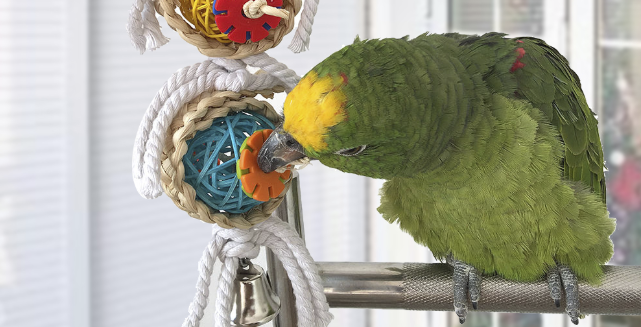
Indoor Bird Cage Toys, Perches & Accessories
Keep your pet Bird entertained with our Bird Toys range, which includes everything from dangling Bells, Nibble Blocks &fun Mirrors.

Foraging for food is a big part of a wild bird’s day. Birdseed doesn’t come in cups in the wild. Instead, ground-feeders like cockatiels and parakeets have to find fields of wild grasses and wait until they go to seed in order to feast on them. Nuts aren’t given as a regular treat in the wild, either. Parrots like Amazons, macaws, and conures have to wait for trees to bloom and fruit before they can relish their favorite snack.
Your bird instinctively knows that he should forage for food, but the abundance of freely given bird food doesn’t allow the behavior, which leaves some birds confused and frustrated, and many others unhealthy and overweight. Until now. OlliePets offers several non-GMO bird foods that are perfect for encouraging foraging behavior, including Nutri-Berries, Avi-Cakes, Pellet Berries, Fruit Delight and Popcorn Nutri-Berrie Treats.

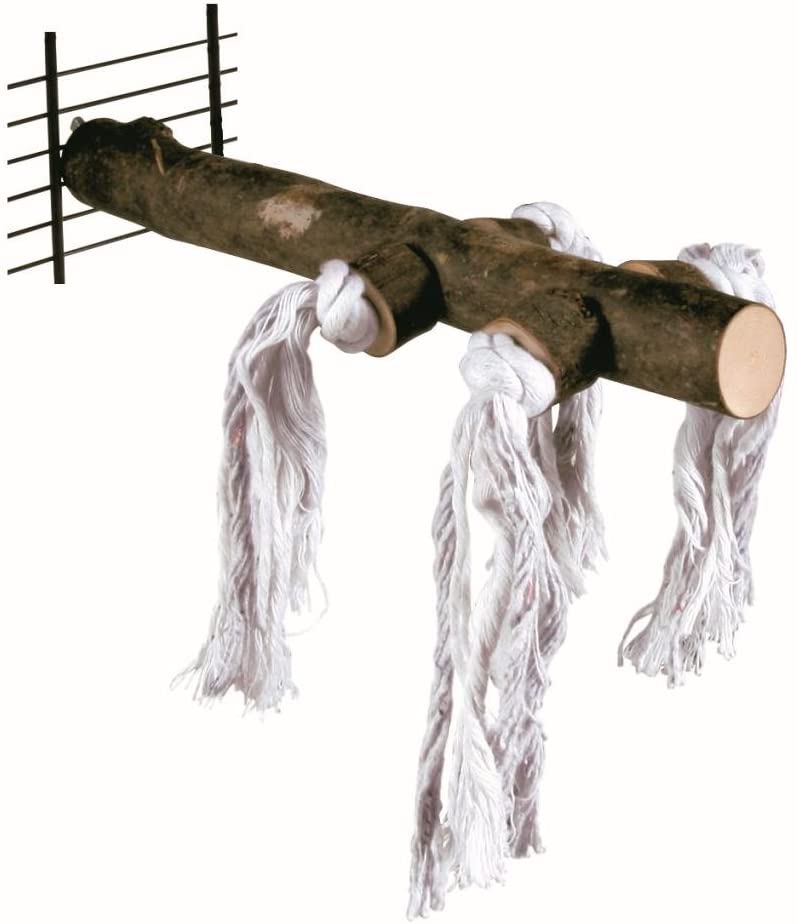
Natural Perch with Rope
Trixie
£1.99

Natural Y Shape Perch
Trixie
£1.49

Nail Triming perch x5
Legendog
£8.99
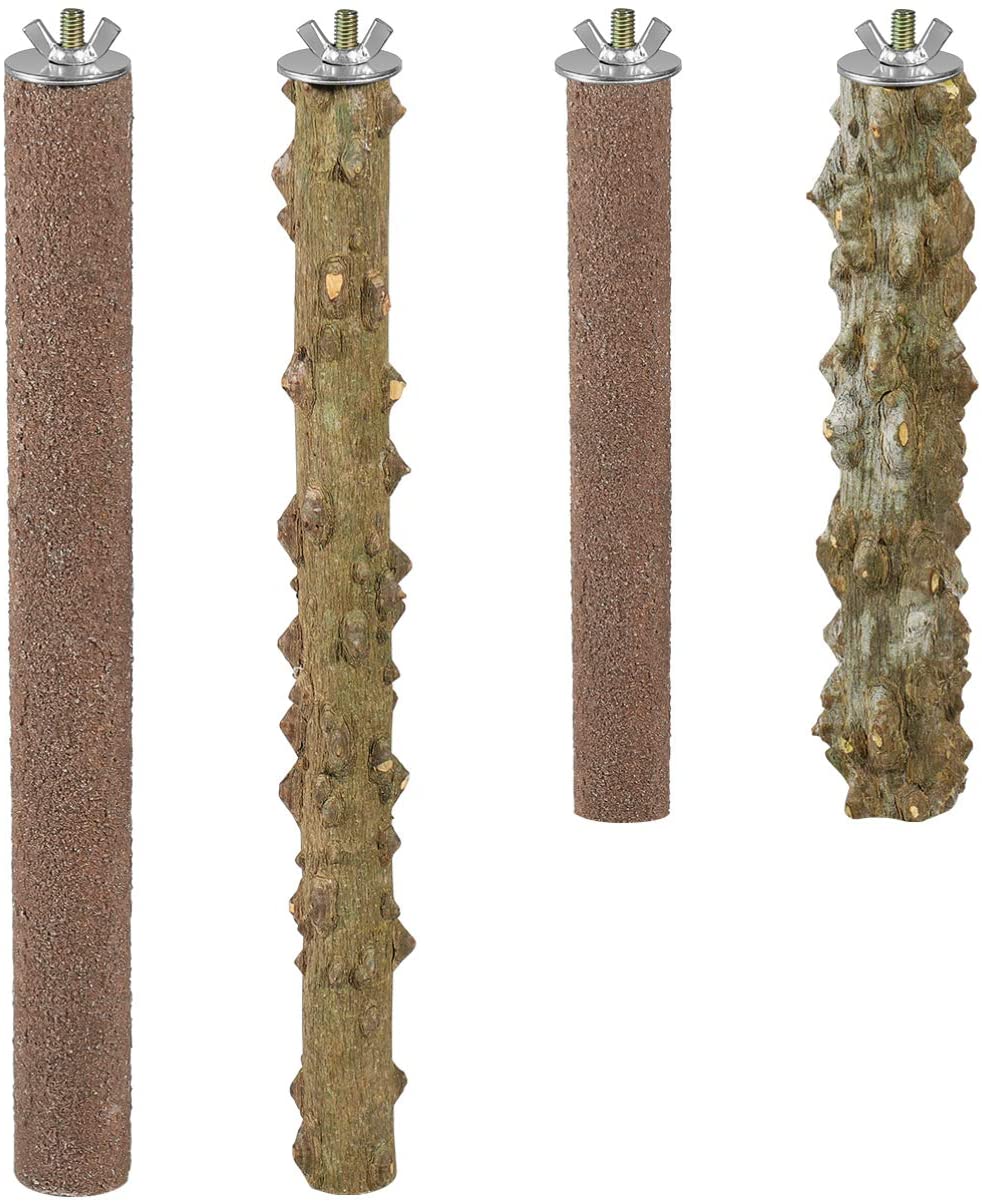
Nature Wood Rough-surfaced x4
POPETPOP
£16.99
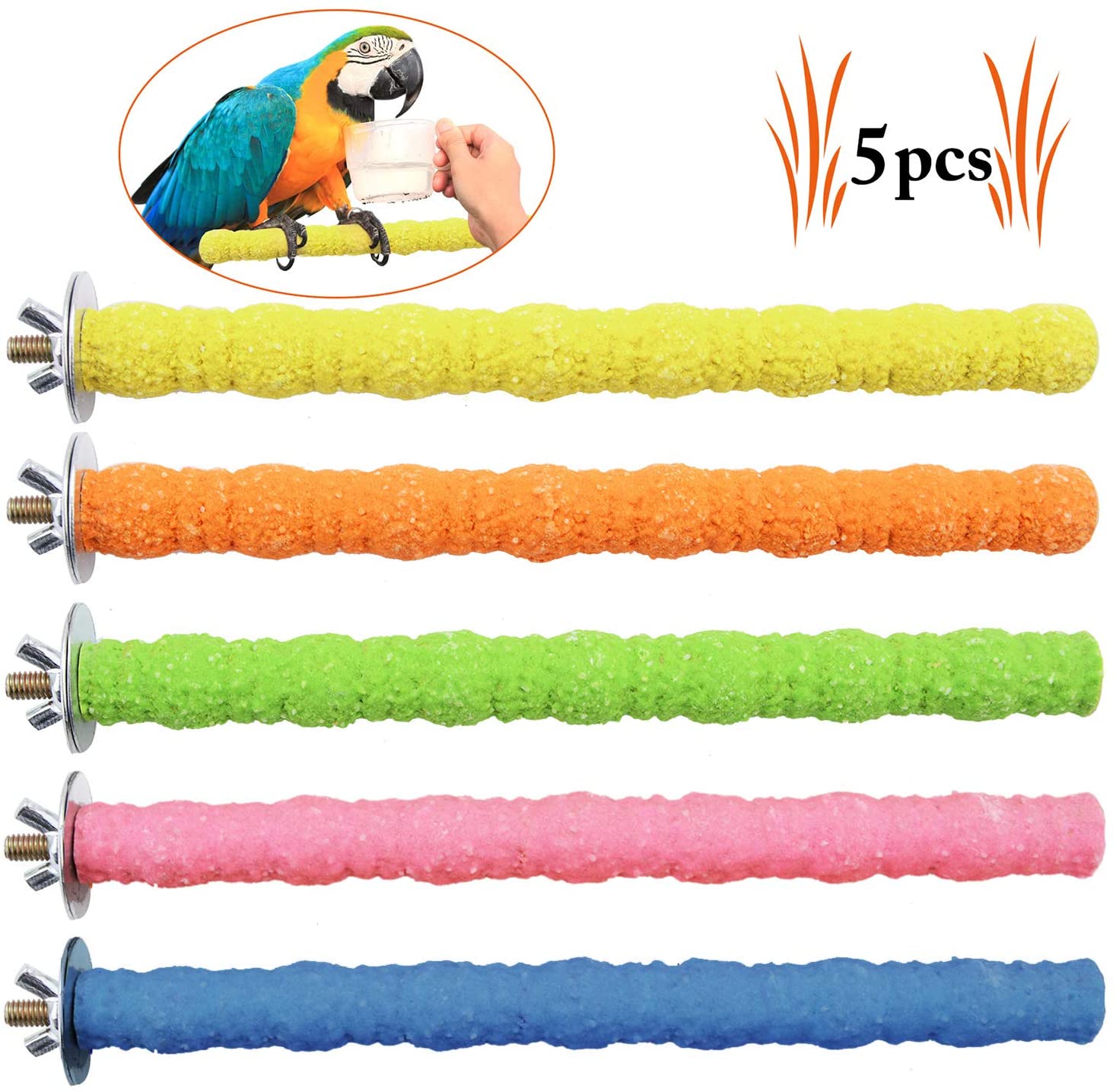
Nail Triming perch x5
Legendog
£10.99
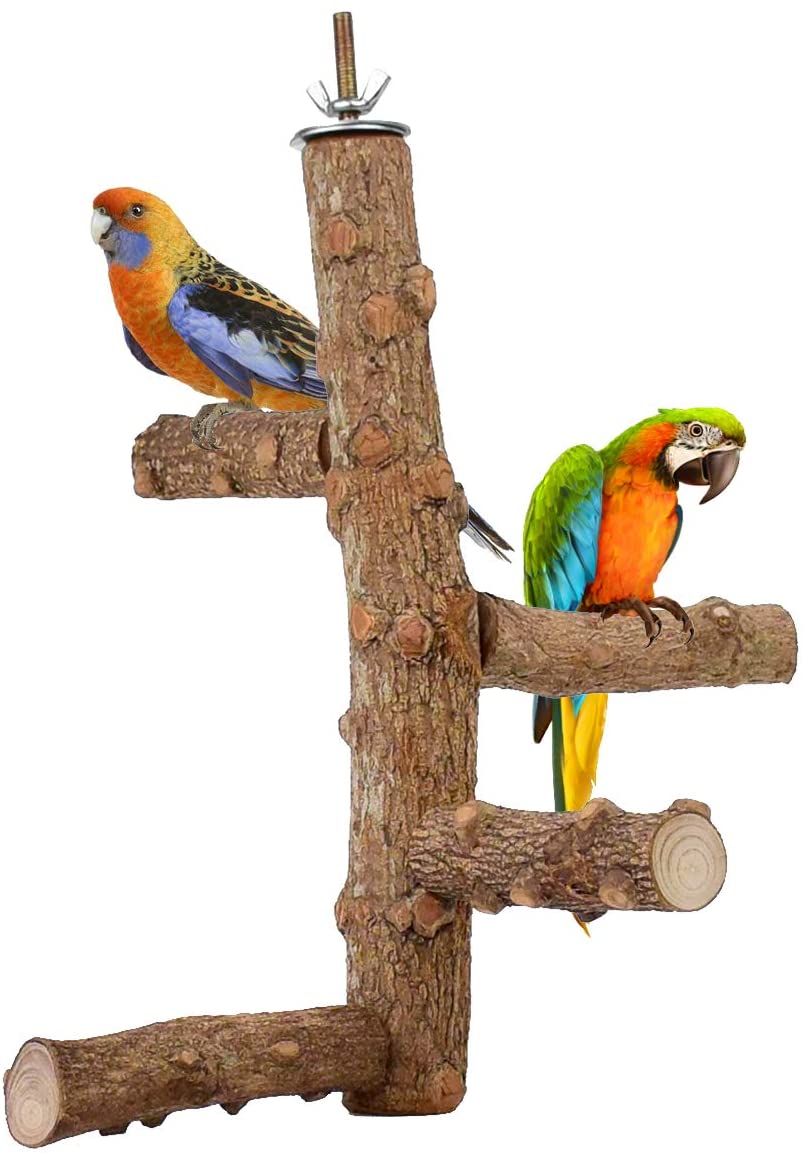
Natural Wood Perch Set
DEDC
£13.69

Rope Perch
Trixie
£8.49

Spiral Cotton Rope
DANCEYOU
£12.99
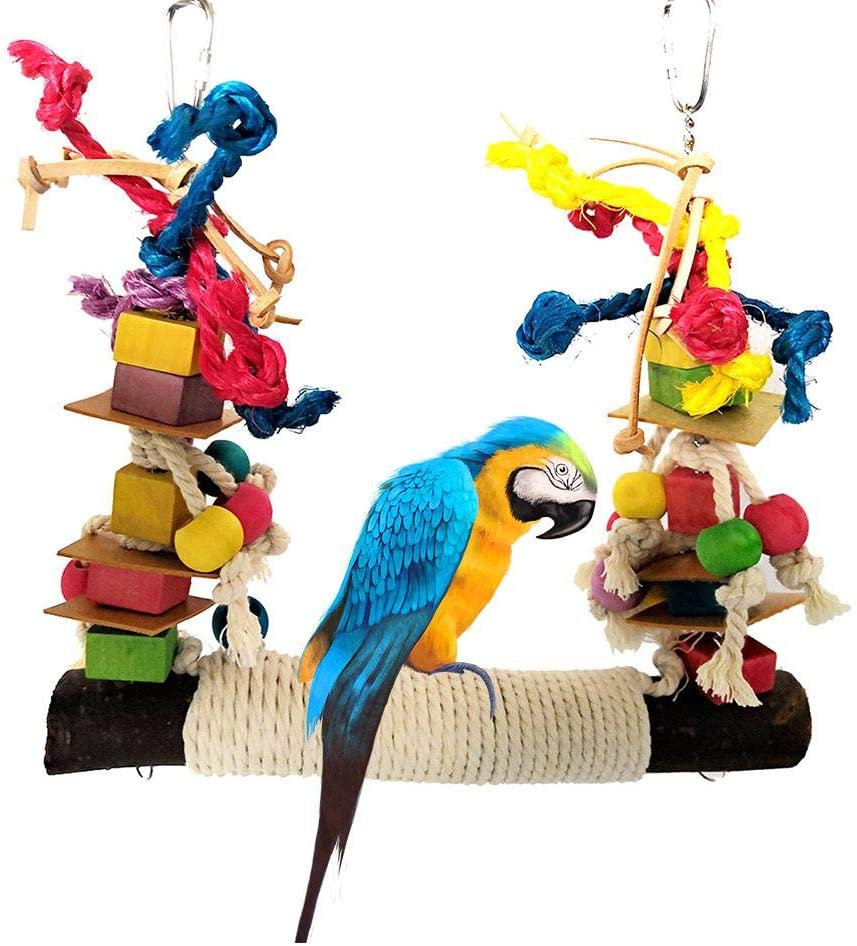
Chew Toy Perch
Rlorie
£10.88
Chewable and Reusable Foraging Toys
In the wilds of the rainforest an Amazon Parrot would naturally spend long periods of time searching for food. Having a chewable or reusable foraging toy helps to replicate that natural behaviour.

MATERIALS COMMONLY USED IN BIRD TOYS WOOD
Birds need to chew, wood is an excellent material to satisfy this natural urge. Birds play most often with wood toys. Wooden toys are meant to be destroyed. Some bird owners may be frustrated by the destructive nature of their parrots. However, chewing is a natural instinct and vital to birds mental and physical well-being. If you provide only acrylic toys they will often find other, more expensive ways to satisfy their chewing needs (i.e., molding, furniture). It is important to know what woods are safe for your bird. Both soft and hardwoods are commonly used in toys.
If you like to make your own toys NEVER use pressure treated wood, it is treated with arsenic and will poison your bird. If using natural branches make sure they have not been exposed to insecticides. Also, take care to collect branches in areas removed from highways where plant life may have absorbed toxic emissions from cars. Scrub all branches with a non-toxic disinfectant (dilute chlorine bleach), rinse and dry thoroughly.
If you need to clean wood toys, don’t soak them. It is best to wipe them clean with a damp cloth or sand the soiled area until clean. If your bird likes to dunk his toys beware that moisture can promote bacterial growth and the toys should either be discarded or thoroughly cleaned and dried in a low temperature oven before returning them to the bird.

Birds are able to distinguish colors therefore color makes wood toys more attractive and interesting to birds. Manufacturers usually color wood with food coloring or vegetable dyes. We don’t believe in flavoring wood as the bird should not be encouraged to ingest the wood and, unless properly controlled, the fruit sugars often used provide a perfect medium for bacterial growth. Do not buy toys that have been stained or varnished to add color. If you are interested in a toy with painted parts (ie, ABC blocks) make sure that only non-toxic, child safe paints were used.






